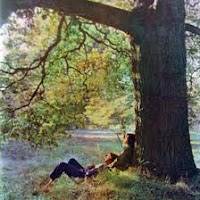 In 1999, Fiona Apple and filmmaker Paul Thomas Anderson were a couple. Judging by this album and Anderson's his tour-de-force film Magnolia, both of which came out that year, wow, it was a fertile creative time in that household.
In 1999, Fiona Apple and filmmaker Paul Thomas Anderson were a couple. Judging by this album and Anderson's his tour-de-force film Magnolia, both of which came out that year, wow, it was a fertile creative time in that household. Emotional, too. Magnolia is pitch black in its depictions of failed fathers and on When the Pawn... Apple seems to find the cloud on every romance's silver lining. Fortunately, like Magnolia, what makes the darkness bearable is the writer's ability to use the artistic process as catharsis while finding some humor and nobility in the struggle (see Limp, Fast as You Can, Get Gone, and A Mistake for more detail).
When the Pawn... has a lot going for it: Jon Brion's Sgt. Peppery production, brevity (it's only 9 songs long), and the fact that all of the songs connect thematically. For me, it's her high water mark.
















































